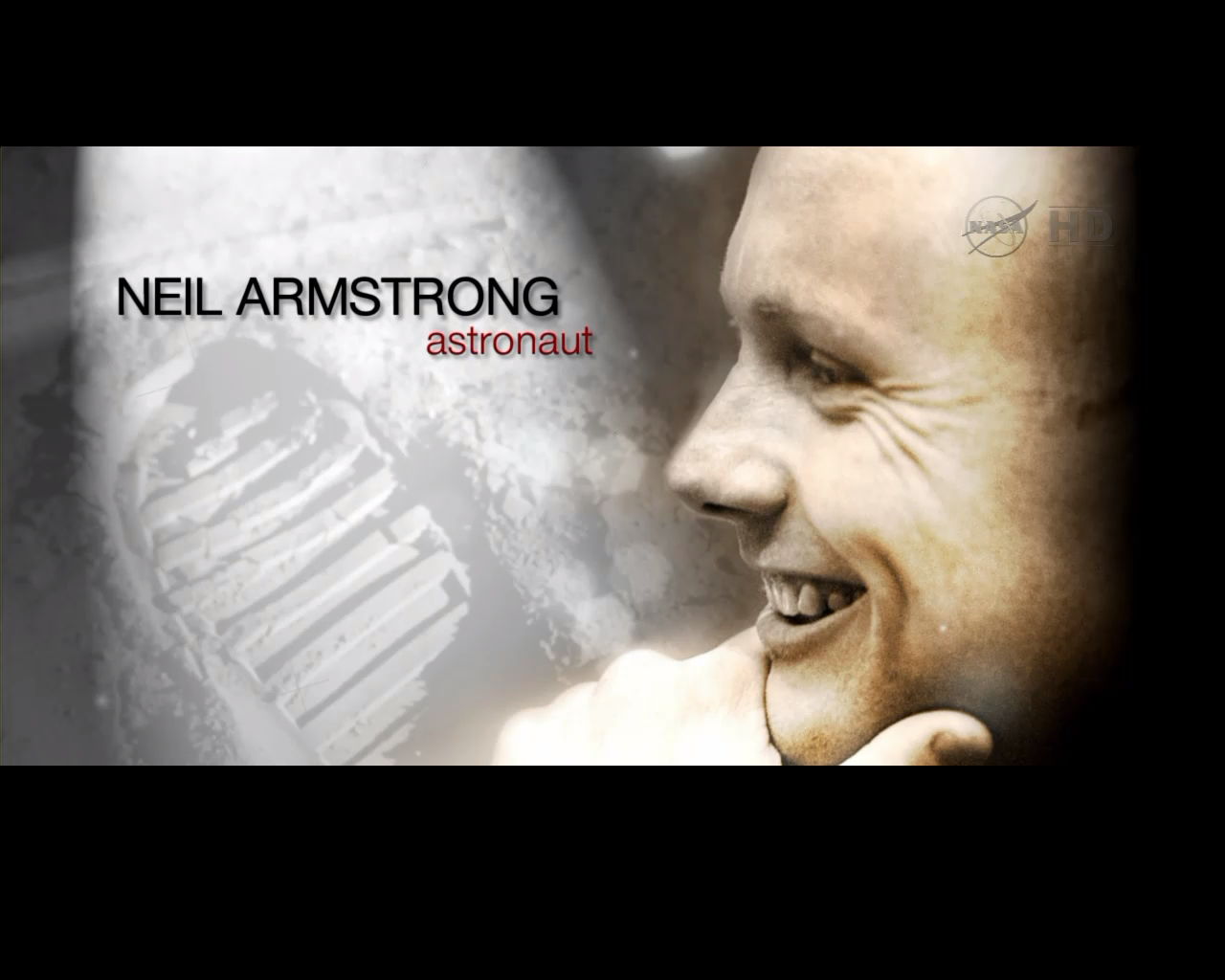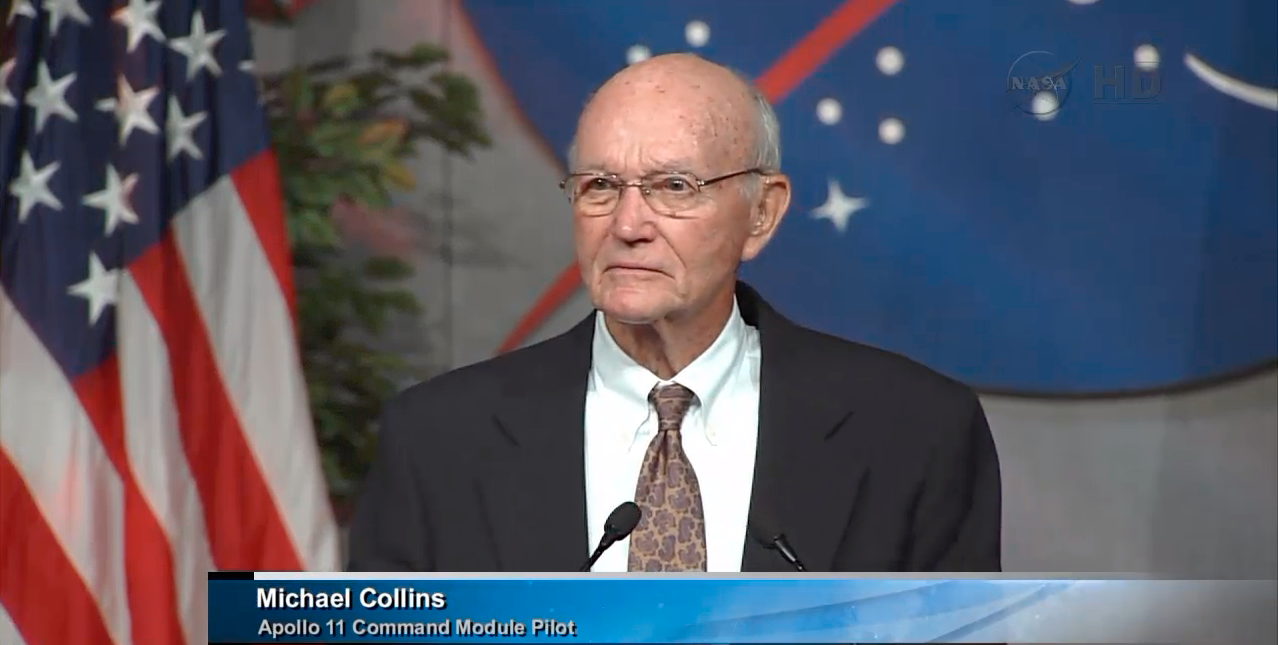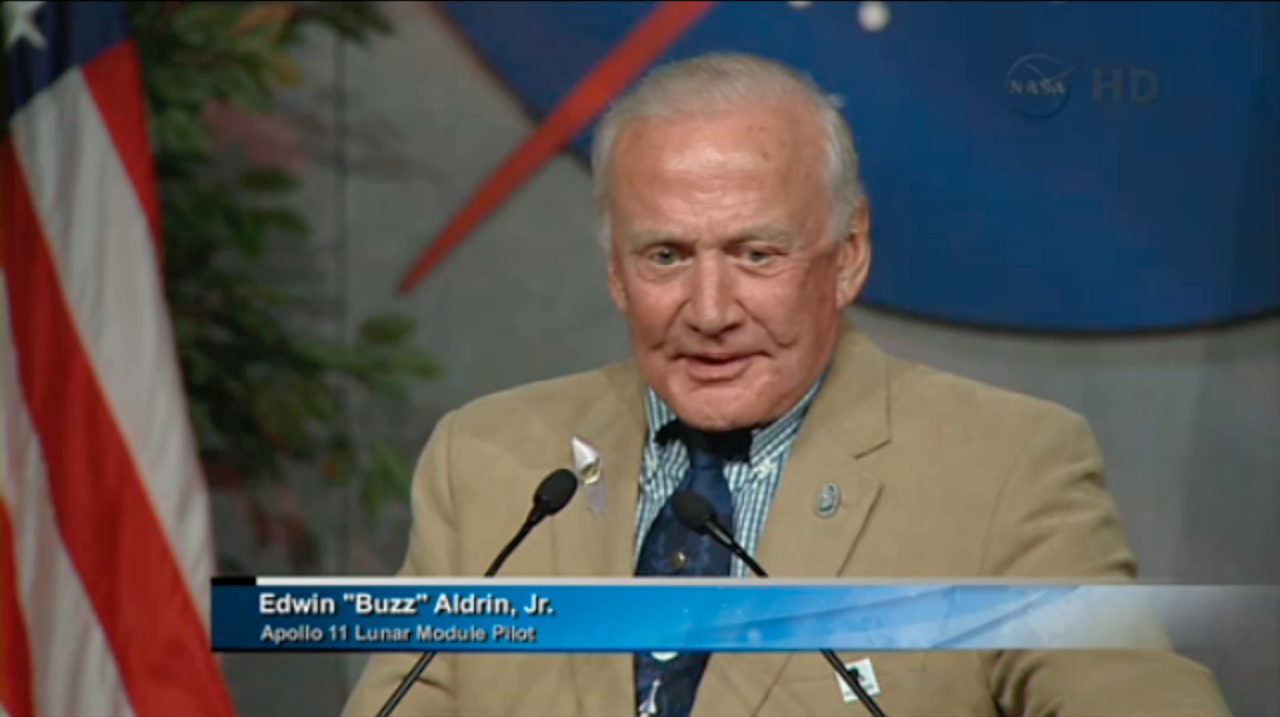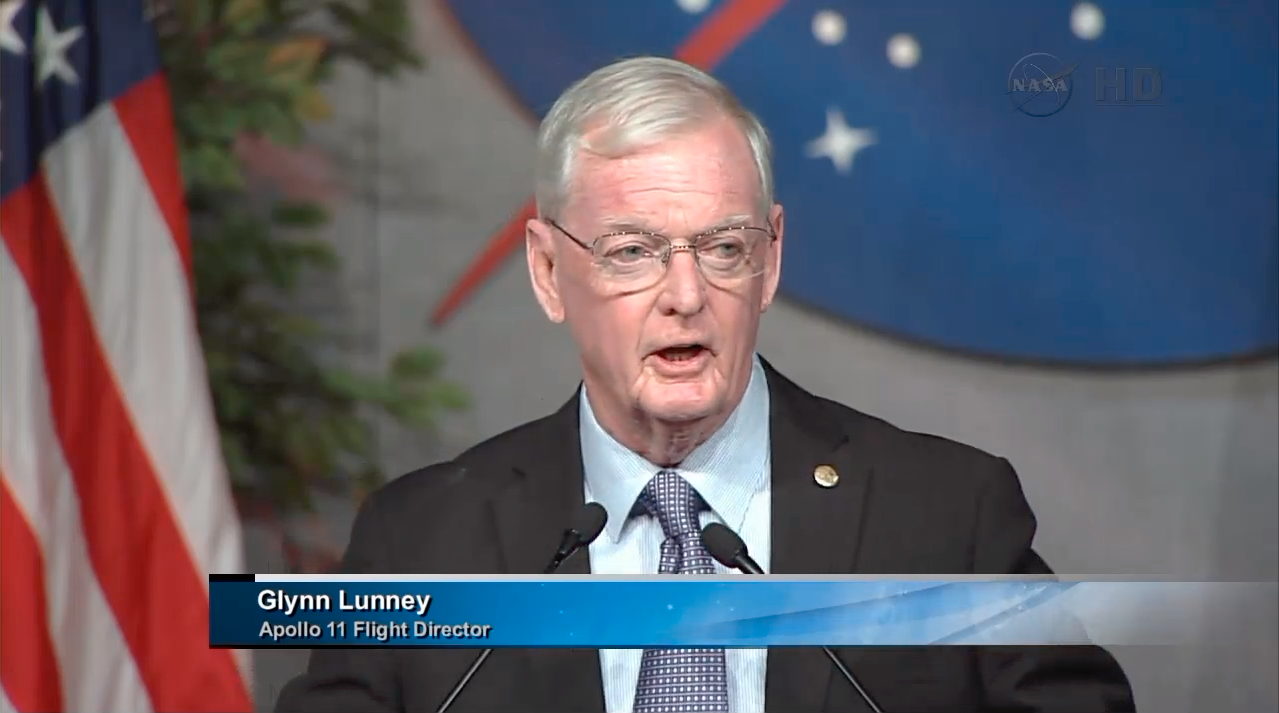Apollo Astronauts Honor Neil Armstrong, 'The Epitome of a Space Man'

Some legends of spaceflight gathered today (June 20) to pay tribute to one of the best among them: Neil Armstrong, first man on the moon.
Armstrong, who walked on the lunar surface July 20, 1969 during the Apollo 11 mission, died Aug. 25 at the age of 82. NASA honored the first moonwalker today during a memorial service at the agency's Johnson Space Center in Houston.
"He deserved all the good things that came his way," Armstrong's Apollo 11 crewmate Michael Collins said during the televised NASA ceremony. "He did this agency proud. He did the whole world proud. He was definitely the right choice to be the commander of the first lunar landing — he was the best."

Armstrong's other companion on the Apollo 11 mission, Buzz Aldrin, also spoke in honor of his comrade. [Neil Armstrong Buried at Sea (Photos)]
"I will be eternally grateful to be so fortunate that my opportunity to fly to the moon and land was under the command of Neil Armstrong — perhaps the best test pilot America's ever seen and the epitome of a space man," Aldrin said.

The speakers not only praised Armstrong's exceptional talent as a test pilot and astronaut, but as a person.
"In the case of Neil, everybody knows about Neil, but not everybody knows Neil," said Glynn Lunney, who served as a NASA flight director during the Apollo 11 mission. "What we'd like to do here today at this service is to introduce more of you to the kind of man he really was: private, quiet, self-disciplined, humble, competent."
Get the Space.com Newsletter
Breaking space news, the latest updates on rocket launches, skywatching events and more!
Armstrong has often been described by those who knew him as a "reluctant hero" who undertook the challenges of Apollo not for personal glory but for the betterment of his nation and the world. He largely stopped signing autographs in 1994, and made public appearances only rarely in recent years, preferring to live his life as privately as possible.
"He was hard to talk to; he was very quiet," Collins said. "If you wanted Neil to break lose, you talked airplanes. He knew more about airplanes than anyone I have ever known."
But when Armstrong wanted to be heard, he was.
"Well before he was even assigned to a flight he had that quality — people listened to him," recalled Apollo 11 flight director Gerry Griffin. "He had the unique capability to take tough subjects and make them understood. That is a quality that Neil is very unique in."

Ultimately, Armstrong's legacy is assured, his friends said.
"Neil will be the human face and the human spirit of the Apollo program," Lunney said. "People are going to look back on it in years to come and be kind of in awe of what was done."
The memorial service was followed by a dedication ceremony at the Memorial Tree Grove, which was founded at the Johnson Space Center in 1996, on the 10th anniversary of the Challenger space shuttle disaster. Since then, a tree has been planted to honor every astronaut who has died.
Follow Clara Moskowitz on Twitter and Google+. Follow us @Spacedotcom, Facebook and Google+. Original article on SPACE.com.
Join our Space Forums to keep talking space on the latest missions, night sky and more! And if you have a news tip, correction or comment, let us know at: community@space.com.

Clara Moskowitz is a science and space writer who joined the Space.com team in 2008 and served as Assistant Managing Editor from 2011 to 2013. Clara has a bachelor's degree in astronomy and physics from Wesleyan University, and a graduate certificate in science writing from the University of California, Santa Cruz. She covers everything from astronomy to human spaceflight and once aced a NASTAR suborbital spaceflight training program for space missions. Clara is currently Associate Editor of Scientific American. To see her latest project is, follow Clara on Twitter.









